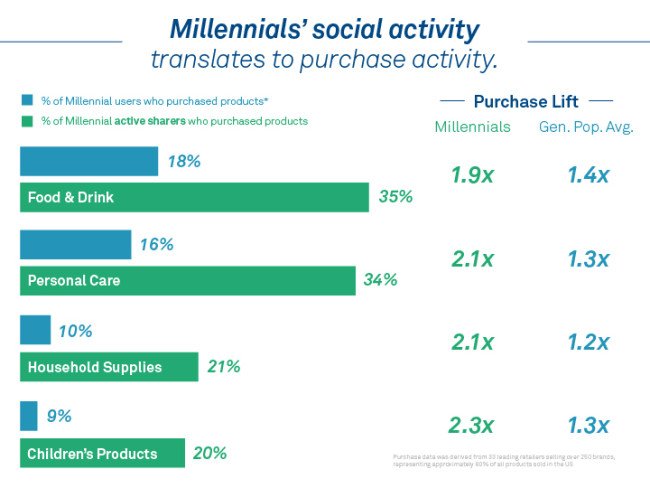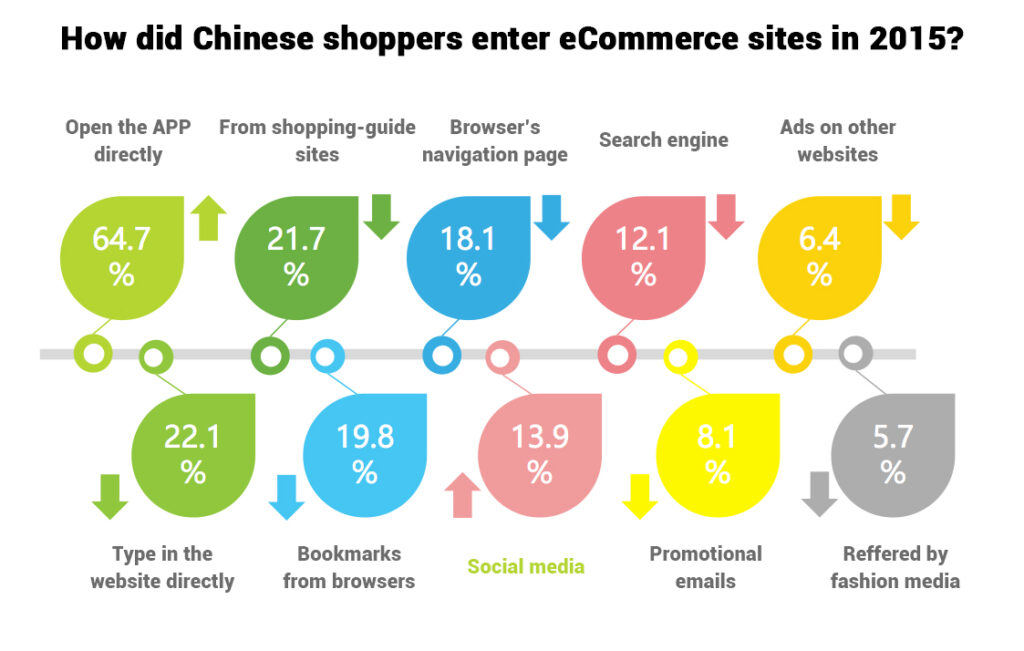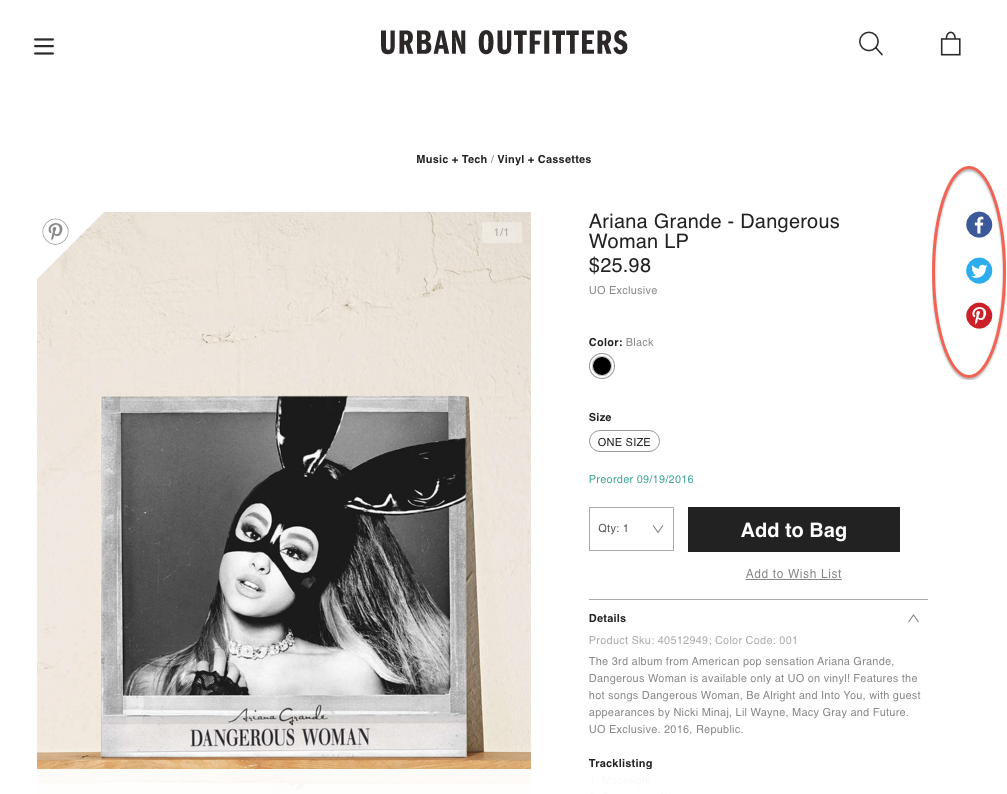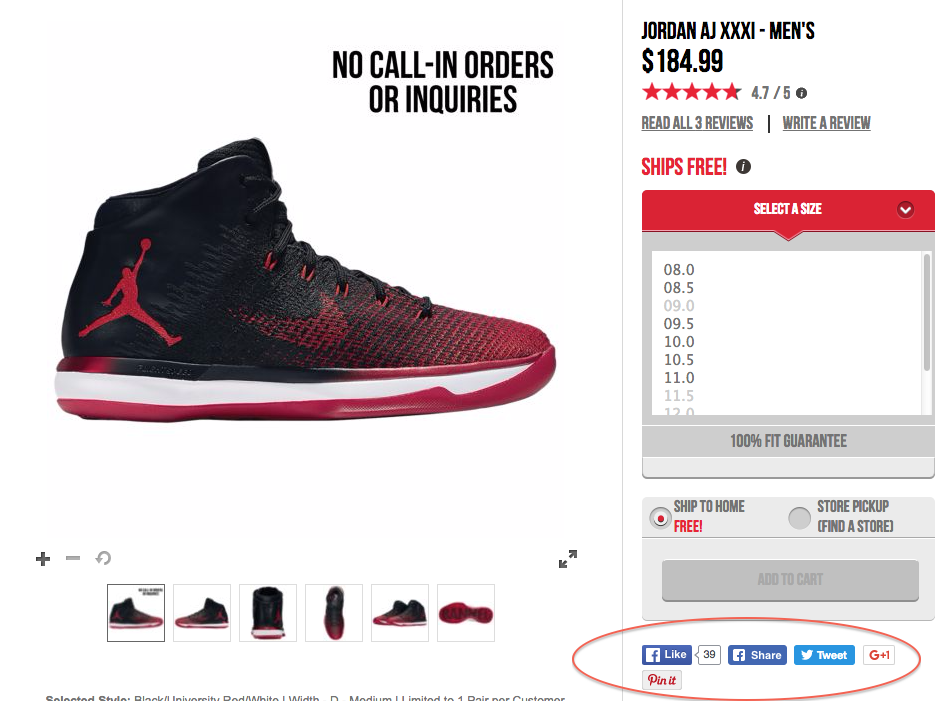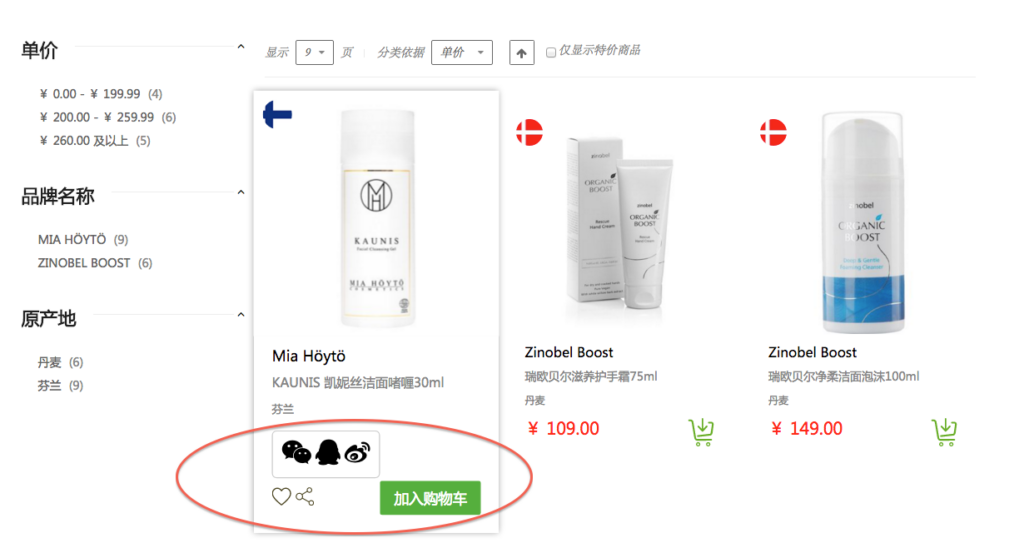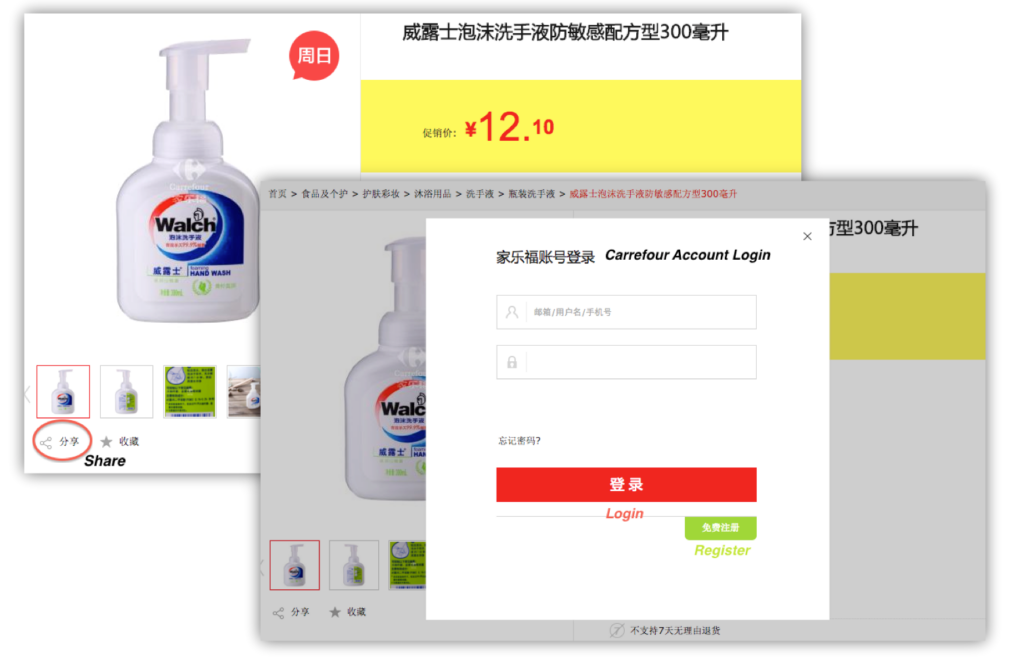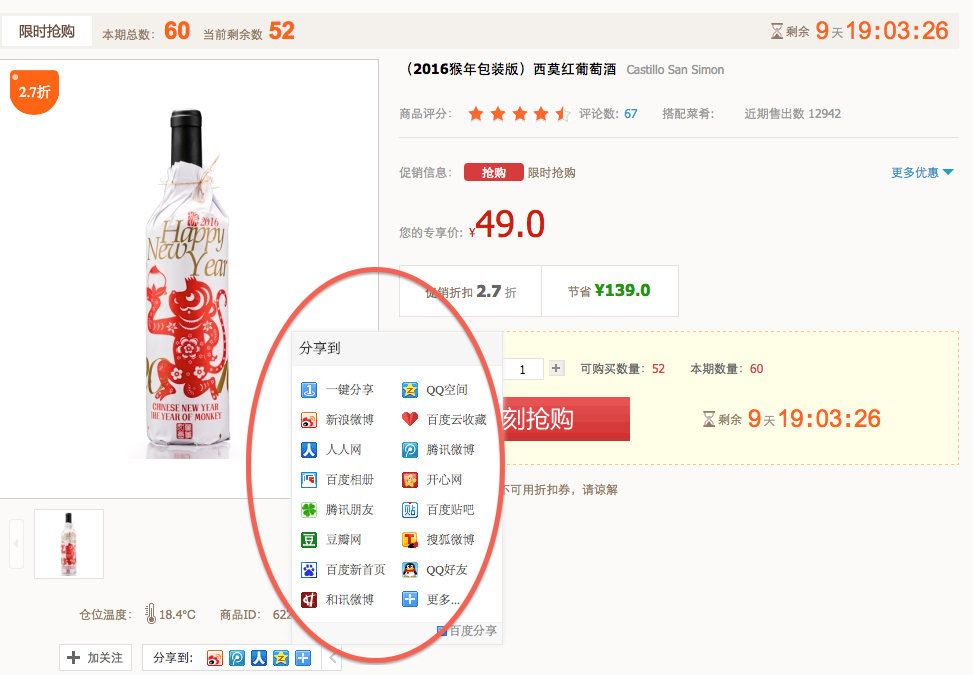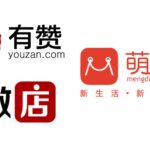In 2016, eCommerce in China has evolved to “social eCommerce”: Chinese eCommerce shoppers are getting used to use social media as a significant channel for initiating online purchases. Having said that, Social share buttons seem essential for your eCommerce platform in China, since it both add convenience for users and help promote your products.
However, debate still remains whether social share buttons are effective. Some marketers insist that social share buttons can be a distraction for online users. Also they are uncertain whether social share buttons can drive clicks and sales.
Especially in China eCommerce ecosystem, do social share buttons really matter? Can they promote conversion optimization?
Social sharing for China eCommerce: Yay
Social share buttons give customers the ability to display their ecommerce purchases on social media platforms. Ideally, social sharing is the free promotion for your eCommerce: more shares bring more publicity, and more publicity means more possibilities on purchases being made.
Research from ShareThis found that social sharing could be favorable to generating revenues. More specifically, it showed that millennial shoppers (those born between the 80s and early 00s) are approximately twice as likely to buy a product they’ve personally shared on social media. Even for non-millennials shoppers, social sharing still raised the purchasing intent for 20% to 40%.
When it comes to China, we see considerable opportunities for brands to leverage social channels to influence consumer’s decisions. In fact, social media has already become a main referring channel for Chinese eCommerce shoppers.
Based on the data shown from 2015 Chinese eCommerce Shoppers Behavior Report, 13.9% of the Chinese eCmmerce shoppers entered an eCommerce site through links from social media platforms. It ranks the 6th of all the referral channels, next to Direct visits eCommerce Apps/sites, shopping-guide websites, Bookmarks from browsers and browser’s navigation page.
Moreover, social media has become a main channel for Chinese customers to gather information and ultimately decide what to buy and where. Consumers are used to do product research or get recommendations on social media, rather than search engines.
For example, which channel do Chinese female shoppers get makeup products information from? The research reveals that in 2015, 69.1% of Chinese female shoppers have used WeChat to explore makeup products, making it the 2nd most used channel. 54.1% of Chinese female shoppers used Weibo in 2015, ranked the 5th most used channels.
The result is obvious: Consumers in China are using social media as a significant channel not only for deciding what to buy, but also for order placement. Equipped your eCommerce with social share buttons will benefit your China eCommerce business.
What’s the difference between China and the West?
1. Different platforms.
Facebook, Twitter, Pinterest are the most popular social platform in western countries.
Meanwhile in China, WeChat is the dominant social hub, followed by Weibo and QQ.
2. Stat counter.
Seen example above, a lot of western eCommerce sites are using stat counter on their social share buttons, while it can be hardly seen in China.
However, social share buttons with counters decrease conversions on some websites. High numbers of shares build consumers' trust in the product, but low or no shares harm credibility.
Tips for using social share buttons in China eCommerce?
1. Make it easy.
The purpose of social share buttons is to save the customer’s trouble from multiple copy and paste jobs, so better make this happen with a few clicks and don’t make it harder.
A good example would be OrganicNordic.com. Customer can share products without getting into the product detail page: simply click on the social share button, choose the platform and finish it.
On the other hand, Carrefour’s online shop in China make social sharing more complicated. When clicking on “to share”, member log in/register is required. Unless you truly love this deal, you will close this wonder mostly.
2. Don’t overdo it.
Just give your customers what they need, do not be pushy or annoying.
Look at yesmywine.com. It offers customers more than 15 social different platforms to choose when it comes to social sharing, thoughtful but totally unnecessary. Too many options will make customers feeling lost, confused therefore hurt your user experience. Not to mention that some of these platforms already went out of business, for example: Kaixin001.com.
3. Think mobile.
In China, most social sharings are being viewed on mobile, so you must think ahead questions like: how does my site look while being shared and opened on mobile? Will it look different on different mobile devices? Do a lot of testing first, and focus on where to improve especially on mobile.
4. Last but not least: Put sales over social sharing.
Of course social sharing will be good, but the primary goal is to boost conversions. With that being said, always put your customers and their user experiences first, and then design/optimize for them. Above all, you want social share buttons that are not beautifully-designed, but sales-driven.



